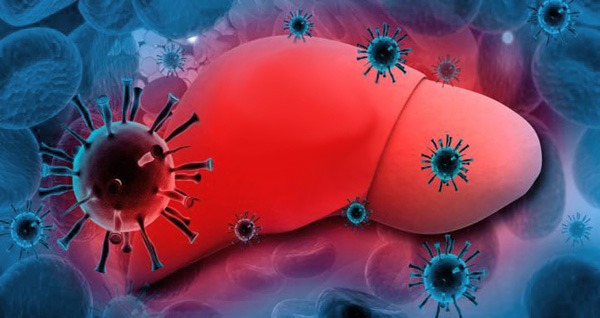Introduction
The liver is one of the most important organs in the human body. It plays a vital role in various metabolic activities including food digestion, nutrient absorption, blood clotting and waste removal. Unlike most organs in the body, the liver once damaged cannot be replaced. And without it functioning properly, no single person can survive 48 hours.
The liver can be affected by a variety of diseases such as cirrhosis, Liver cancer, fatty liver disease, hepatitis A, hepatitis B and hepatitis C. However, the most common liver infection around the world is the Hepatitis B.
What is Hepatitis B?
Hepatitis B is an infection caused by the Hepatitis B virus that attacks the liver. The virus is typically transmitted through blood and infected bodily fluids.
Hepatitis B Statistics
According to WHO, about one-third of the world population lives with Hepatitis B. In America alone, over 100,000 people become infected with the virus each year. Available statistics also state that 12 million Americans currently live with the virus, out of which more than 1 million have the chronic hepatitis B. Each year, about 5,000 Americans die from chronic Hepatitis B and its complications.
Types of Hepatitis B
Hepatitis B infection can be categorized in two types: the acute Hepatitis B and the chronic Hepatitis B.
1. Acute Hepatitis B: This occurs when an individual first become infected with the Hepatitis B virus. The symptoms at this stage are usually mild and can last from a few days up to six months. About 90% of healthy adults fight off this stage and recover without any problem. However, more than 50% of young children are usually unable to get rid of the virus at this juncture.
2. Chronic Hepatitis B: This can be referred to as “severe Hepatitis B.” A person is typically diagnosed with chronic Hepatitis B if he/she is unable to fight off the Hepatitis B virus for more than six months. At this stage, the symptoms can sometimes be severe.
Most people who recover from acute Hepatitis B infection develop protective antibodies and are usually at no risk of getting the virus again.
Causes of Hepatitis B
The Hepatitis B virus is primarily transmitted through blood and infected body fluids (in fact the virus is 100 times more contagious than the AIDS virus) which may occur through:
✓ Direct blood-to-blood contact
✓ Use of unsterile needles especially during piercing, tattooing, acupuncture and injection.
✓ Sharing of personal items such as toothbrush, nail clippers, and earrings
✓ Childbirth i.e. from an infected woman to her baby during delivery.
✓ Unprotected sex.
Symptoms of Hepatitis B
Most people suffering from acute Hepatitis B, do not show symptoms. However, when they do, the symptoms are usually flu-like and may include:
✓ Fever
✓ Fatigue
✓ Muscle or joint pain
✓ Loss of appetite
✓ Mild nausea and vomiting
✓ Yellow eyes
✓ Jaundice Skin
✓ Bloated or swollen stomach
On the other hand, people with chronic Hepatitis B can live for decades without having any symptoms. However, at this stage, the liver is usually continually damaged. At times, chronic Hepatitis B infection can lead to liver cancer and cirrhosis (a condition where tissue fibers scar the cells of the liver). If appropriate treatment is not sought in time, the liver might stop working. This condition is known as liver failure and normally leads to death.

